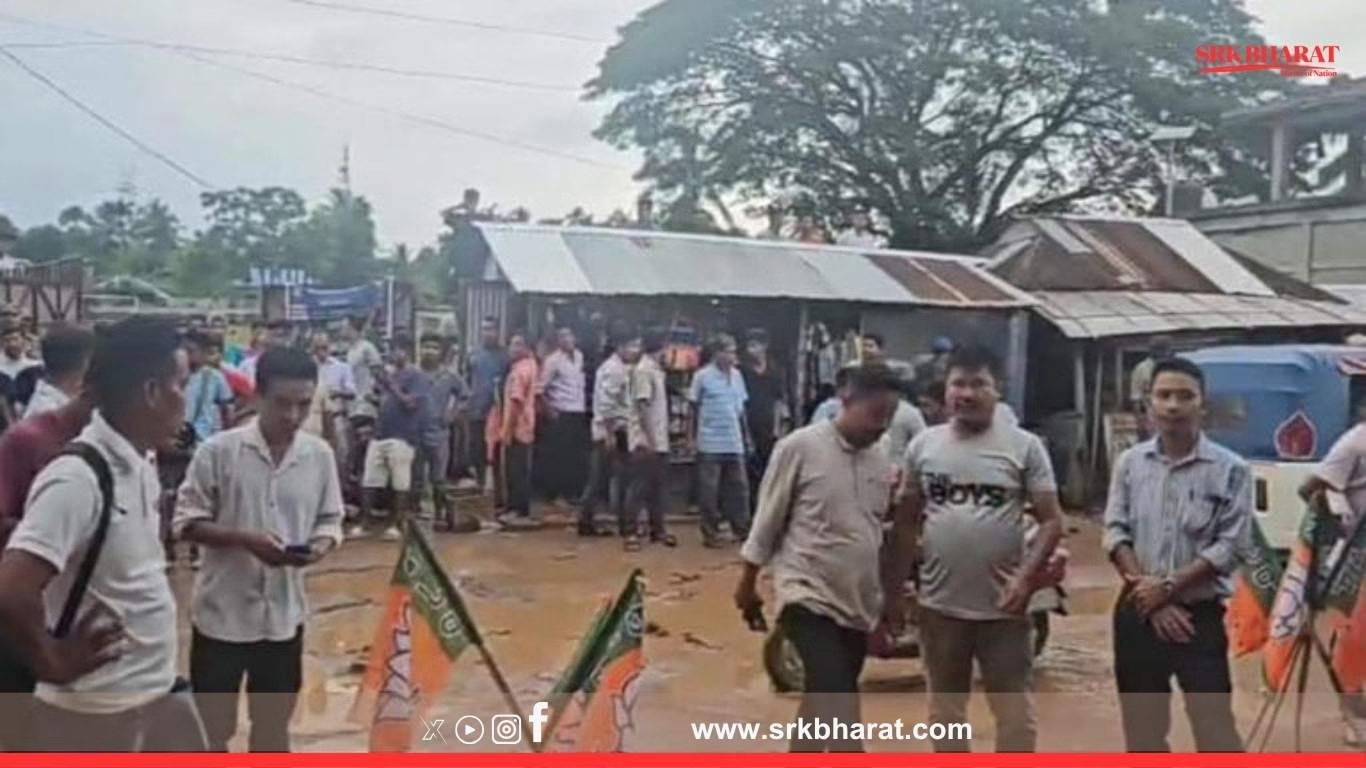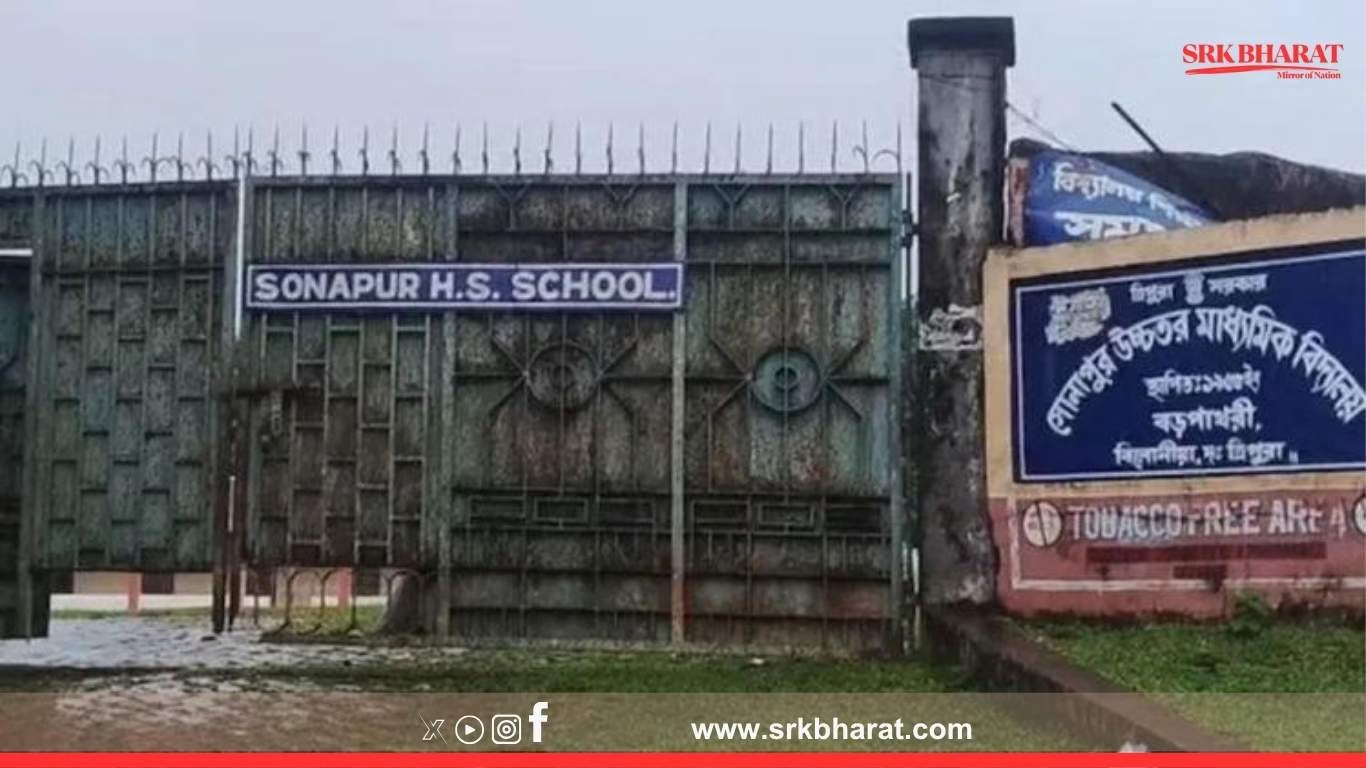In a significant cross-border security development, Tripura Police arrested a Bangladeshi woman and her Indian boyfriend from Agartala on charges of illegal entry, forged identity documents, and violation of immigration laws. The arrest has raised concerns over the continuing porous border challenges between India and Bangladesh and their socio-legal implications in the northeastern state.
Details Of The Arrest
According to officials, the woman, identified as Fatima Khatun (24) from Comilla district of Bangladesh, and her Indian partner Rakesh Das (28), a resident of Tripura’s Sepahijala district, were arrested on Tuesday following a tip-off. They were detained at a rented house in Shibnagar area of Agartala where they had been residing for the past several weeks.
Superintendent of Police (West Tripura) Kiran Kumar stated:
“The woman entered India illegally without valid travel documents. The Indian man arranged forged Aadhaar and local documents for her stay. Both have been booked under relevant sections of the Foreigners Act and IPC.”
How The Arrest Unfolded
- Local residents alerted police about suspicious movements and sudden arrival of the woman.
- Police conducted background verification and found discrepancies in her claimed identity.
- On interrogation, she confessed to illegally crossing the border with Rakesh’s help.
- Forged Aadhaar card, voter slip, and other local documents were seized from the house.
Motives Behind Illegal Entry
Preliminary investigations suggest that Fatima and Rakesh met on social media two years ago. They developed a relationship and planned to live together in Tripura. Officials indicated that there is no immediate evidence of espionage, trafficking, or militant links in this case, but background verification is underway by intelligence agencies to rule out broader networks exploiting the porous border.
Implications For Border Security In Tripura
Tripura shares an 856 km long border with Bangladesh, of which nearly 67 km is unfenced due to terrain and habitation complexities. This has historically led to:
- Frequent illegal crossings for marriage, jobs, or smuggling
- Entry of undocumented migrants with forged identity papers
- Challenges in border area policing and demographic monitoring
A senior BSF officer in Tripura commented:
“While many crossings are for personal reasons like marriages or kin visits, the use of forged documents remains a security concern as it can be exploited by organised crime or extremist networks.”
Legal Provisions Invoked
| Person | Charges |
|---|---|
| Fatima Khatun | Illegal entry under Section 14 of Foreigners Act, 1946 |
| Rakesh Das | IPC Sections 468, 471 (forgery), and harboring an illegal immigrant |
If convicted, the woman could face imprisonment up to five years and deportation, while Rakesh may face similar imprisonment along with penalties for forgery and abetment.
Previous Similar Incidents In Tripura
Tripura has witnessed multiple arrests in recent years involving Bangladeshi women entering the state to live with Indian partners. Often, such couples are caught while preparing forged identity documents to establish local residency, violating both immigration and national identity regulations.
Recent Cases
| Date | Location | Description |
|---|---|---|
| March 2024 | Sonamura | Bangladeshi woman arrested for entering illegally to marry Indian farmer |
| August 2023 | Agartala | Two Bangladeshi nationals arrested with fake Aadhaar cards |
| November 2022 | Dharmanagar | Bangladeshi man arrested for illegal stay, working as mason for four years |
Why Such Cross-Border Movements Occur
Experts cite ethnic, cultural, and linguistic ties across the Indo-Bangladesh border in Tripura, where Bengali is spoken widely. This social proximity often facilitates informal cross-border relationships, marriages, and visits that violate official immigration norms.
Additionally, porous border stretches, inadequate fencing in riverine or densely populated belts, and lack of local vigilance aid such movements despite the presence of BSF and state police forces.
Impact On Local Society
- Security Risks: Forged documents can be misused for illegal bank accounts, property purchases, or welfare benefits.
- Demographic Sensitivity: Tripura has historically faced demographic changes due to migration from erstwhile East Pakistan (now Bangladesh), making fresh illegal entry a politically sensitive issue.
- Law Enforcement Burden: Detection, verification, and legal processing of such cases stretch local police and judiciary resources.
Government Measures To Tackle Illegal Migration
The Tripura government and BSF are implementing:
- Smart fencing projects under the Comprehensive Integrated Border Management System (CIBMS)
- Regular combing operations in unfenced areas
- Awareness campaigns in border villages to report suspicious movements
- Digitisation and linking of identity databases to detect forgeries
However, officials note that social media friendships and informal kin networks continue to pose new challenges in monitoring illegal cross-border movements.
Experts Urge Policy Clarity On Cross-Border Marriages
Immigration experts suggest that while illegal entry must remain a punishable offence to protect national security, clearer legal frameworks for cross-border marriages can reduce forgery and clandestine entries if processed formally with due verification.
Professor Sanjoy Debbarma, a socio-political analyst in Agartala, observed:
“Many such couples resort to illegal means due to lack of streamlined inter-country marriage visa procedures. This increases vulnerabilities to trafficking or abuse.”
Next Steps For The Arrested Couple
Both Fatima and Rakesh were produced before the Agartala district court, which remanded them to judicial custody for further investigation. Police are verifying:
- Whether an organised network facilitated her crossing and document forgery
- Any prior record of similar offences by Rakesh or his associates
- Potential links to smuggling syndicates exploiting border vulnerabilities
If the court orders deportation, coordination with Bangladesh authorities will be required for repatriation.
Conclusion
The arrest of the Bangladeshi woman and her Indian boyfriend in Tripura underscores the complex socio-legal challenges of cross-border migration, identity security, and human relationships transcending national boundaries. As Tripura continues to modernise border management while retaining cultural ties with Bangladesh, evolving legal frameworks balancing security, humanitarian considerations, and bilateral protocols will remain crucial.
Disclaimer: This news content is based on police statements, public information, and local expert opinions. It does not constitute legal advice or judgment on ongoing investigations. Readers are advised to follow official law enforcement updates for verified case status and proceedings.











